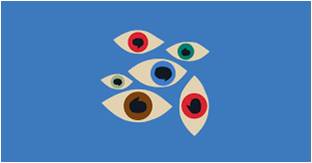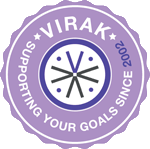Great Service Skills and Dealing with Difficult Clients 
Today's organizations rely on their 'Service Providers' to help them stand out from the competition by providing consistently superior customer service – a very demanding task! One of the key elements in this task is to understand first, who the customers are, and what they need. Customers are both, internal and external to the company – and only, if the close correlation between internal cooperation and external customer satisfaction is understood, the Service Providers will be able to succeed in delivering consistent quality service.

So, why a 'Great Service Skills' Workshop?
In your Service Provider role you interact daily with the person that our organization believes to be the most important person in our business – your customer. Sometimes it's easy to deliver great service – what the customer needs is simple for you to supply and they are pleasant and co-operative to deal with. But often it's not so easy, simply because when the customer calls you, they normally have a problem and then your interactions have the potential to be not so pleasant. Often what the customer might perceive as being a simple, straightforward issue to resolve is far from it. When they can't get what they want, their frustration at what they then perceive to be poor service can negatively affect their attitude and tone of voice. As for you, confronted with an aggressive, confrontational interlocutor, it's easy to lose your cool and match their mood, 'fighting back' or just losing the will to be helpful. To deliver 'Great Service' you need to be able to anticipate and manage these very human reactions and then respond in a way that makes the customer happy, again and again. It means adopting a mental attitude and a code of behavior that demonstrates, through your words and actions, that you are putting the customer first.
Service Providers need:
- To know, who their customers are, what they need and how their role will help to achieving the overall business goals
- The right skills and attitudes to understand the customer in all situations
- An underlying interaction and communication process
Course Objectives
A key element of your customer service role is to deliver stellar service to all your customers. This program will help you to enhance your current skills and enable you to practice and apply the necessary communication techniques by:
- Understanding and applying the basic principles of continuously superior customer service
- Practicing the communication process as well as the underlying skills, attitudes and mindset that support these basic principles
- Be able to apply these skills consistently with all your customers (external or internal) with particular focus on: • Opening and Closing – The key moments in a customer conversation
• Problem Identification and Needs Analysis
• Presenting Information and Informing Customers
• Managing difficult situations
As a result, you'll be better equipped to help your company to deliver “Great Service” to your customers, whether these are internal or external.
Workshop Content
You'll participate in various activities, designed to take you from an overall view of what it takes to deliver great service to detailed practice with role-plays and case studies.
- Great Service
- What is “Great Service” and what are the attributes of a Great Service Provider?
- Analyzing different Helpdesks
- Introduction to the Great Service Model: “GREET, GET, GIVE, and GO! “©
- GREET
- The first impression counts
- Role Plays
- GET
- Getting Information
- Questioning and Listening Skills
- Building rapport and demonstrating empathy
- Demonstrating Great Service Attitude
- Role Plays
- GIVE
- How to present “Customer Focused” information
- Chunking your information
- Explaining complex content in a simple fashion
- Building customers confidence
- Role Plays
- Managing Challenging Situations
- Managing facts and feelings
- Calming the angry customer
- Showing empathy
- Finding solutions
- Role Plays
- GO!
- Ending with a Great Service Provider Attitude
- Establishing a Partnership
- PAP
- Personal Action Planning
Training Methodology
The workshop is delivered in a positive, enthusiastic, energetic and stimulating manner using a mixture of tutor led input, and based on a series of role plays, where participants get the possibility to apply their skills and receive intensive feedback. The role-play situations progressively become more complex and difficult throughout the 2 days.
Assessment and Measurement
After each practice session we take extensive time for individual and group feedback, which each participant should incorporate into their PAP (personal action plan) and make use of during the remaining of the workshop. At the end of this workshop, the participants are able to identify and recognize the key behaviors and skills to enable them to consistently deliver great service and as a final part of the workshop, participants are asked to complete their PAP based on what they have learnt during the 2 days.
Personal Action Plan
Each participant will choose 3 objectives from their Personal Action Plan to achieve within the following 3 months, based on what they learned during the workshop.
We will arrange a group conference call 3 months after the workshop with the trainer to go through the Personal Action Plan, in order to debrief on what each participant achieved, and if not, why not. This ensures that each participant applies the theory learned during the workshop.
